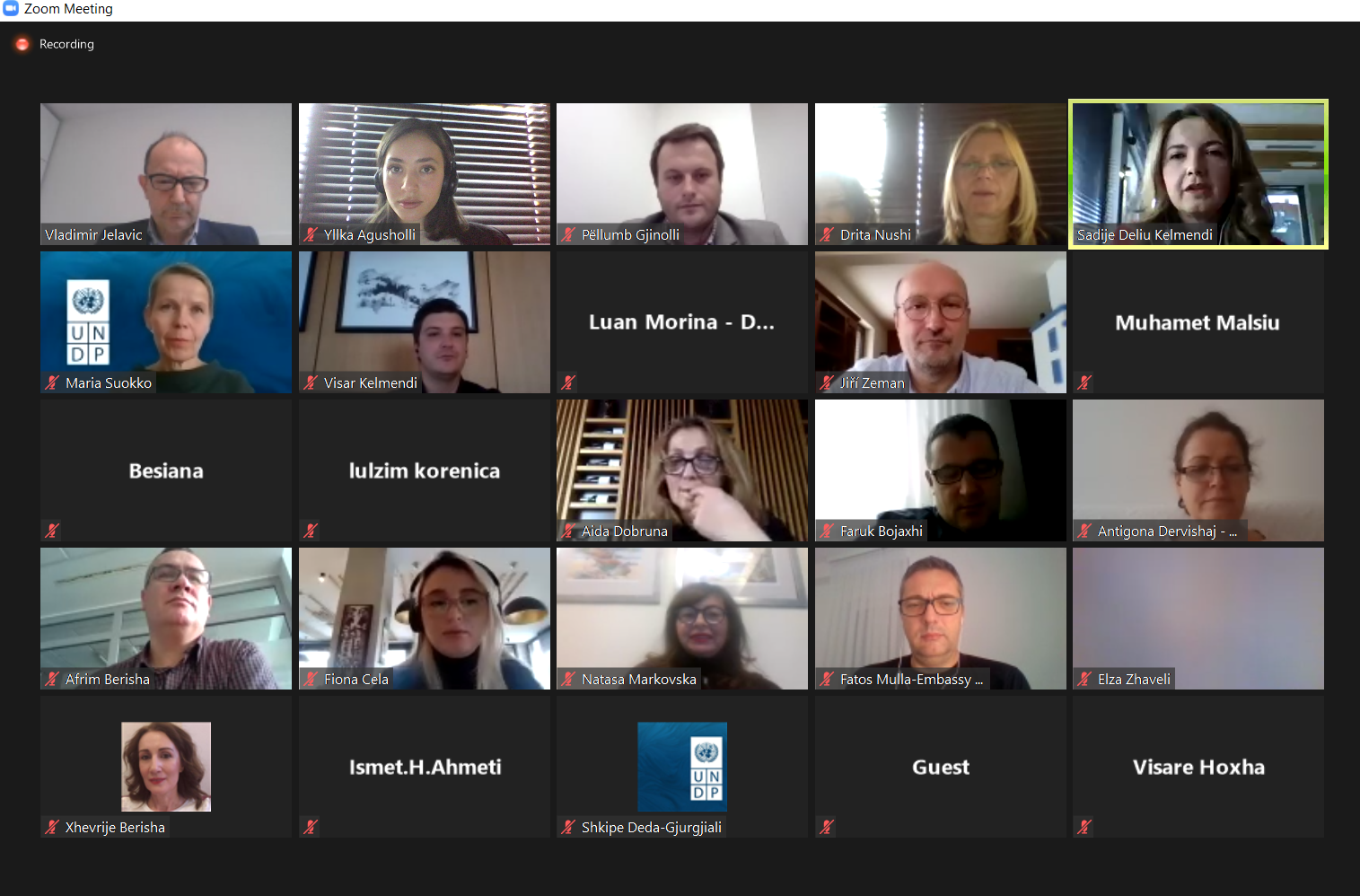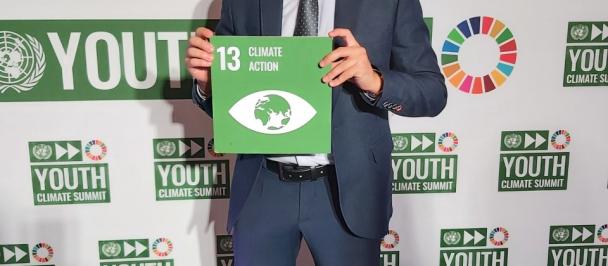Global warming is already causing long-lasting changes to our climate system and threatens lives and livelihoods around the world. Adding to this the affect that COVID19 pandemic has in our lives, the policymakers are rightly focused on protecting public health, stabilizing economies, and helping those whose livelihoods are at risk.
The Climate Promise project is UNDP’s response to this challenge, which aims to support Kosovo Institutions to enhance the greenhouse gas (GHG) reduction and long-term decarbonisation strategies by ensuring to accelerate nature and climate actions and help communities to “build back better” by investing in systemic changes needed to accelerate Sustainable Development Goals progress. UNDP has agreed Climate Promise workplans with 115 countries – making it the world’s largest offer of support for the enhancement of countries’ climate pledges.
The two-day virtual webinar organized under Climate Promise project on 3-4 December 2020, gathered representatives from Technical Secretariat of the Kosovo Climate Change committee, working group of the Kosovo National Energy and Climate Plan (NECP), as well as representatives of the Sustainable Development Committee, aiming to strengthen the critical institutional efforts to address climate action within their pandemic response.
Kosovo is not a signatory party to the Paris Agreement and does not have NDCs (National Determined Contributions) due to its status, yet it has developed a Climate Change Strategy 2019 – 2028 and a three-year Action Plan, and voluntarily joined the 2030 Agenda for Sustainable Development committing to the 17 Sustainable Development Goals (SDGs), aiming to eliminate extreme poverty, reduce inequality and create a greener planet.
Following experiences and examples from the countries in the region, the topics treated in the webinar were: Energy and climate targets, Drafting a low-carbon strategy, GHG Inventory, Monitoring Policies and Measures (PAMs), Preparation of reports according to UNFCCC requirements, Economic, Environmental and Social evaluation of PAMs, Climate action as stimulus for sustainable development and green economy, SCAN tool and Roadmap for target setting.
As countries in the region are a step ahead in mainstreaming the climate change in sectoral policies, the GHG reduction and long-term decarbonisation strategies, the webinar unveiled some of the main challenges that Kosovo face, such as: limitations in human capacities, insufficient information and data from relevant sectors, lack of understanding of the inventory efforts by relevant institutions (including academia) and low levels of awareness by institutions on prioritizing the fight against climate change.
Following these critical challenges, the webinar provided the right information and examples on capacity building for Kosovo Committee on Climate Change (KCCC) Technical Secretariat and GHG emission team on tools, methodologies and approaches to data collection and setting quantitative and qualitative GHG emission reduction targets.
The webinar was closed with the hope that Kosovo would benefit from the important methodologies and examples revealed and will follow the right steps to set a path of green sustainable development for us - and future generations.
Climate Promise Project Brief:
The intended impact of the project “UNDP'S Climate Promise” is to deliver on the promise of the Paris Agreement. UNDP supports 115 countries to undertake an inclusive and transparent engagement process for enhancing their Nationally Determined Contributions (NDCs) by 2020, with demonstrated increase in ambition.
The Climate Promise project in Kosovo aims to support Kosovo institutions to strengthen their capacities for setting up more ambitious targets for greenhouse gas (GHG) emissions reduction, to advance implementation of climate actions and their alignment with the Sustainable Development Goals (SDGs), to facilitate access to the necessary financial and technical support, and thus to help Kosovo achieving green recovery, low-carbon development and climate resilience.

 Locations
Locations

